James Thompson
Schäfer
Vera was a postdoctoral research associate working on realising a continuous-wave superradiant laser using Strontium atoms in a high finesse ring cavity. She joined the lab in 2021 coming from the University of Oxford where she was working on trapped ion quantum computing. She is currently a Junior Research Group Leader at the Max Planck Institute for Nuclear Physics, Heidelberg where she is developing precision spectroscopy of single trapped highly-charged ions.
Song
Eric joined the lab in Spring 2022 after graduating from New York University Shanghai. At NYU, he worked on entangling BECs with Prof. Tim Byrnes, as well as phase transitions in the Vicsek model and Ising model with Prof. Paul Chaikin, Charles Newman and Daniel Stein. Currently he is working on simulating many-body physics with strontium atoms.
Niu
Zhijing joined the group in fall 2021 after graduating from Xi’an Jiaotong University. In the past, she worked on condensed matter experiments with Prof. Mengkun Liu at Stony Brook University as an exchange student. After that, she switched her interest to AMO physics and did a gap year in Prof. John Doyle’s group at Harvard University where she worked on laser cooling ytterbium hydroxide. She did her first year of graduate school remotely in China and worked in Prof. Matthias Weidemüller’s group on Rydberg atoms at USTC.
Koh
Vanessa joined the lab in Fall 2019 after earning her MPhil from University of Cambridge. Her masters work with Ulrich Schneider focused on building an experiment to study many-body physics in systems with a kagome geometry. Previously, she worked at the Centre for Quantum Technologies in Singapore with Loh Huanqian on quantum simulation and with Murray Barrett on quantum metrology. She is currently working on the Rubidium experiment, which applies cavity-QED to study different phenomena such as matter-wave interferometry and momentum exchange physics.


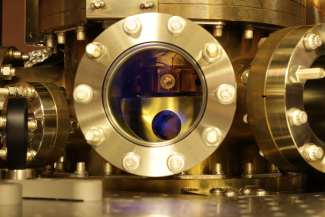
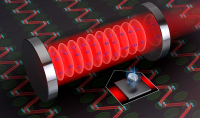
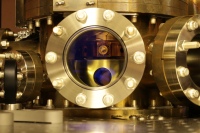
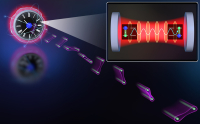
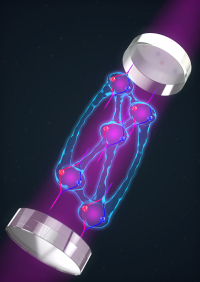
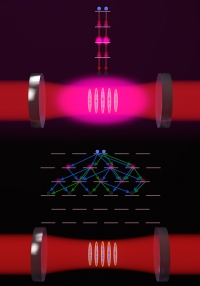
 The Physics Frontiers Centers (PFC) program supports university-based centers and institutes where the collective efforts of a larger group of individuals can enable transformational advances in the most promising research areas. The program is designed to foster major breakthroughs at the intellectual frontiers of physics by providing needed resources such as combinations of talents, skills, disciplines, and/or specialized infrastructure, not usually available to individual investigators or small groups, in an environment in which the collective efforts of the larger group can be shown to be seminal to promoting significant progress in the science and the education of students. PFCs also include creative, substantive activities aimed at enhancing education, broadening participation of traditionally underrepresented groups, and outreach to the scientific community and general public.
The Physics Frontiers Centers (PFC) program supports university-based centers and institutes where the collective efforts of a larger group of individuals can enable transformational advances in the most promising research areas. The program is designed to foster major breakthroughs at the intellectual frontiers of physics by providing needed resources such as combinations of talents, skills, disciplines, and/or specialized infrastructure, not usually available to individual investigators or small groups, in an environment in which the collective efforts of the larger group can be shown to be seminal to promoting significant progress in the science and the education of students. PFCs also include creative, substantive activities aimed at enhancing education, broadening participation of traditionally underrepresented groups, and outreach to the scientific community and general public.